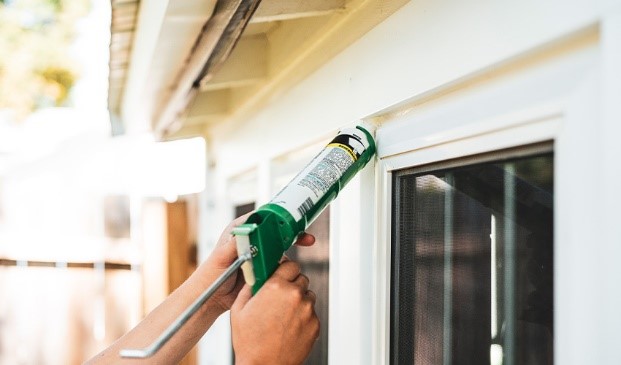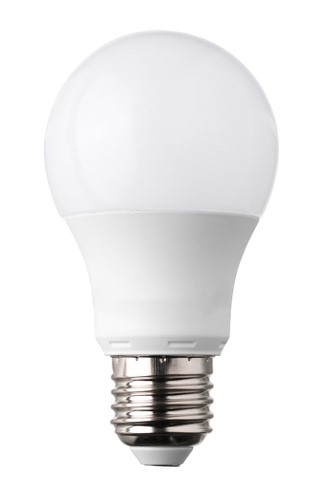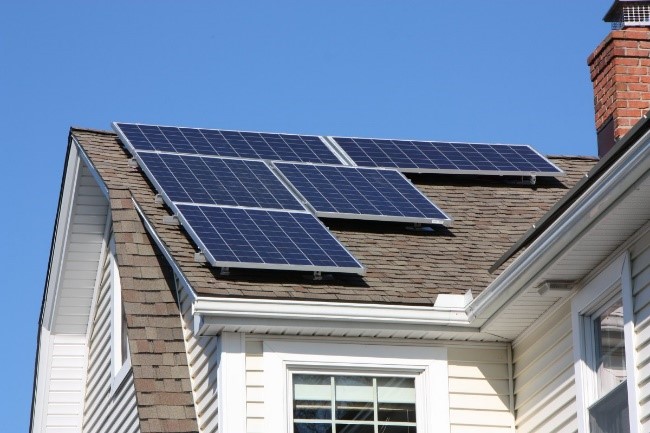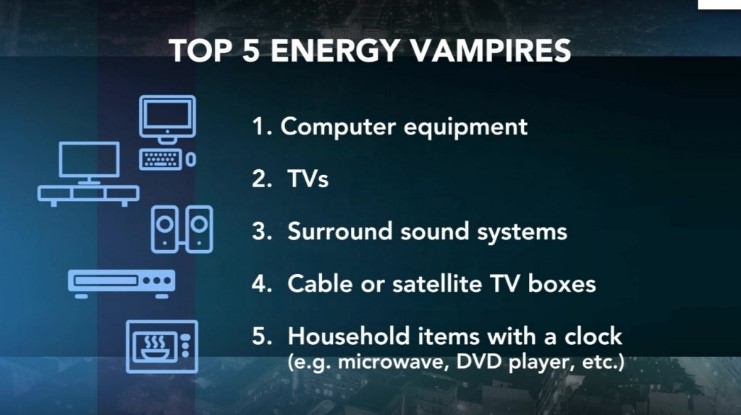October is Energy Awareness Month. The Mike Monroney Aeronautical Center (MMAC) recognized National Energy Efficiency Day on October 6, 2021. As many of us continue in maximum telework mode due to the global health crisis, home energy efficiency is more important than ever. Here are some of the most asked questions on home energy efficiency.
 Someone repairing a leaky window or window with a broken seal.
Someone repairing a leaky window or window with a broken seal.
- What is the most cost-effective energy efficiency measure for my home?
- Homes can vary so it’s best to have an energy expert examine your home to get the best results. However, if your home is typical, reduction of air infiltration is almost always one of the most cost-effective measures, because it can have significant impact to savings. Outside air brings in a lot of heat and humidity during the summer, and cold in the winter that your air system must overcome. Caulk and sealant are inexpensive. Caulk can shrink and degrade over time and weathering can result in gaps or cracks. Other measures that can be very cost-effective are adding insulation, if your home’s insulation is less than R-30. If you have single pane windows, or if they have broken seals, you may need to have them replaced with double panes.
 LED Light Bulb.
LED Light Bulb.
- Are LED lights really worthwhile?
- Yes – in most cases. Did you know that incandescent bulbs produce more heat than light? LED bulbs are much more energy efficient, and produce light using as little as 20% of the energy of a comparable incandescent bulb. Additionally, the life expectancy of LED bulbs or fixtures is MUCH longer so it won’t need to be replaced as often. A couple of extra tips - 1) it is almost always cost effective to immediately change out bulbs or fixtures to LED in lights that are used frequently, like kitchens or living spaces. For closets or utility rooms that are only used occasionally, wait until the existing bulb burns out to replace it. 2) For enclosed fixtures, only use LED bulbs that are rated for use in enclosed fixtures, or their life may be shortened significantly.
 Solar Panels on a roof.
Solar Panels on a roof.
- Are home solar panels worthwhile?
- Maybe. Most electric rates in Oklahoma are relatively low, but the amount of solar resource (sun) available is very high. Costs of solar photovoltaic (PV) panels and related equipment have come down in the last few years. If you have a good amount of south or southwest facing roof surface and your shingles have a good amount of life remaining, it may be worthwhile to get an estimate from an installer. Look at your electric bills for the last year and consider how much you think you could reasonably save and compare that to the cost estimate of installing the solar panels. If the payback is only a few years, then it’s worth considering. Keep in mind that there can be maintenance / repair costs due to Oklahoma’s wind/hailstorms.
 List of the top 5 energy vampires.
List of the top 5 energy vampires.
- What is the most common home energy usage that people are least aware of?
- “Vampire energy” is energy that your appliances or electronics use in addition to what is expected. It can easily account for 10% of your total energy usage. Did you know for example that a cable TV box can use nearly as much energy in standby mode as when it’s in use? Other offenders include computer monitors not using low-power standby settings, appliances with clock circuits, phone chargers that are left plugged-in, and amps/speakers left on while not in use. The easiest way to minimize vampire energy usage in your home is to use power strips with switches that turn off all power to electronics when not in use. Large kitchen appliances like ranges or large microwave ovens however should never be plugged into power strips for safety reasons. Please remember to never daisy-chain power strips.
As summer fades and before the cold winds of winter begin to blow, take a few minutes to look at your home’s energy efficiency. Energy efficiency is one of the most economical means to save money and promote a sustainable future. If you have any questions or suggestions regarding the MMAC Energy Program, please contact the MMAC energy manager at (405) 954-9610.